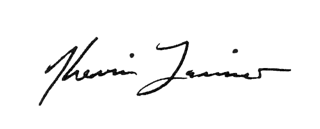Only in Memory
We were in the middle of a remarkable conversation that veered from motorcycles to square dancing, from Carl Jung to Marcel Proust, when his wife politely interrupted and set before us a plate of madeleines she had just that afternoon procured from a French nun who didn’t speak English, along with a chicken from a neighboring farm she would roast for our meal that evening. If it had been a film, the scene could not have been scripted more perfectly. Enter novelist David Rhodes. It was June 2008, and I was at the writer’s home in Wonewoc, in the “Driftless” region of Wisconsin, to talk about his fourth novel, Driftless, set to be released that autumn by Milkweed Editions, thirty-three years after the publication of his previous novel, Rock Island Line. I had arrived that morning to discuss not only his triumphant new book, but also the events of those intervening years during which, as I wrote in the resulting profile for this magazine, “a horrifying motorcycle accident broke his back, paralyzed him from the sternum down, threw his marriage into a tailspin from which it would not recover, and all but erased his name from contemporary literature for the next three decades, his books quietly falling out of print, forgotten.”
The woman who offered us the most literary of treats that afternoon was his second wife, Edna, and it was her words, which I read on the Milkweed website in December, that conjured the bittersweet recollection of my short but unforgettable time with David, who died in November at age seventy-five. “He was kind and open, with a lively mind and quick wit. He delighted in thought-provoking discussions on any subject imaginable with anyone who was willing,” she wrote. “When you engaged with him you felt free from anonymity, rooted in community.”
The word community gets bandied about a lot, but not in the sense that Edna was using it—that feeling of fellowship certain special people can give you, even if you’re a relative stranger, as I was to David prior to our day together. That sense of community is a big part of what we’re trying to evoke with this magazine, too, through conversations with folks like Tyehimba Jess and Patricia Smith and Vivian Lee and Rakia Clark, and it’s the allure of the best writers retreats, the focus of this issue’s special section. I am fortunate to have known David, to have engaged with him, and I wish for you the same good fortune of meeting a fellow writer, finding a similar connection. I hope this magazine provides such a spark.








